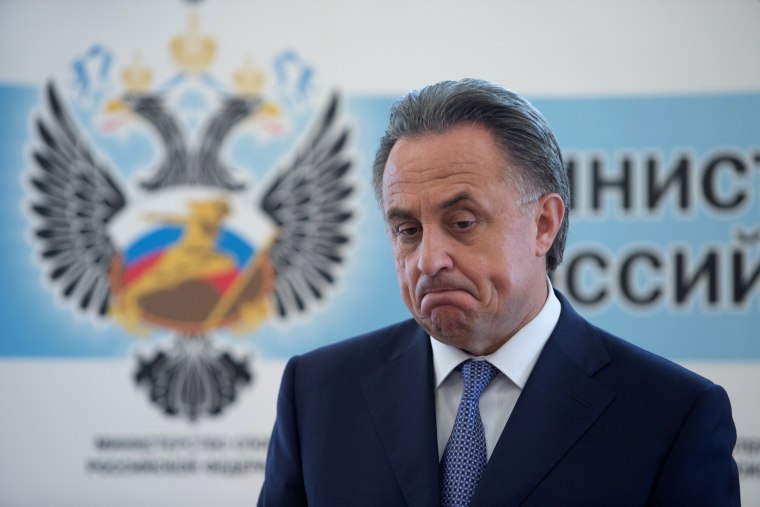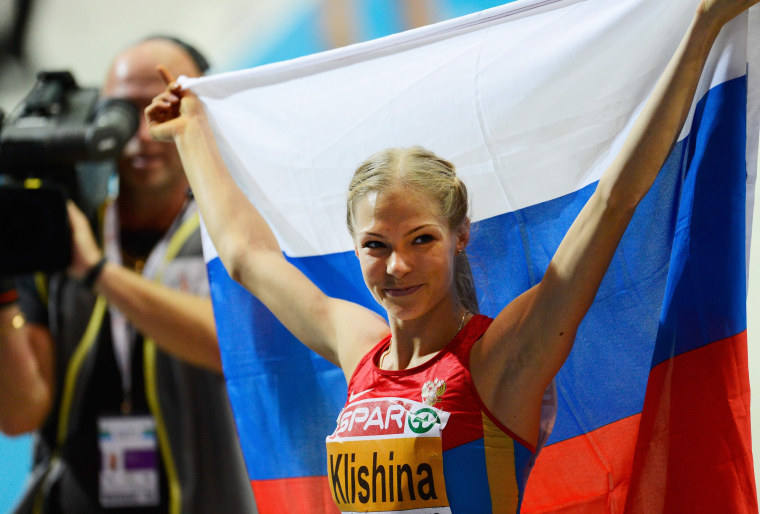The International Olympic Committee is playing kick the can: Passing their struggle with cheating athletes on to other organizations.
The IOC has decided against a complete ban on Russian athletes from the Olympics in Rio de Janeiro. It is leaving it up to global federations to decide which Russian athletes to accept in their sports.
But the IOC says it will deny entry of Russian athletes who do not meet the requirements set out for the federations.
The IOC says the federations have the authority, under their own rules, to exclude Russian teams as a whole from their respective sports.
The World Anti-Doping Agency uncovered a state-run doping scheme that masked at least 312 positive tests.

Russia’s track and field athletes had already been banned from the Rio games. Those athletes last week lost a last-ditch appeal against their expulsion.
Calls for a complete ban on Russia had intensified since a WADA-commissioned report from Richard McLaren, a Canadian lawyer, accused Russia's sports ministry of overseeing a vast doping program of its Olympic athletes.
Related: Rio Olympics' Top Anti-Doping Scientist: Cheats 'Will Probably Be Caught'
McLaren's investigation, based heavily on evidence from former Moscow doping lab director Grigory Rodchenkov, affirmed allegations of brazen manipulation of Russian urine samples at the 2014 Winter Games in Sochi, but also found that state-backed doping had involved 28 summer and winter sports from 2011 to 2015.
IOC president Thomas Bach said the findings showed a "shocking and unprecedented attack on the integrity of sports and on the Olympic Games."
Russian athletic community's reaction to the IOC's decision was favorable — with a bit of "We told you so."
"It's an optimal decision for us in this situation," Shamil Tarpishchev, IOC member and head of the Russian Tennis Federation told reporters.
"I think the IOC has made a wise decision and upheld its honor," International Weightlifting Federation board member David Rigert said. "It's highly possible that Russian weightlifters will be allowed in the Olympics. [IWF President] Tamas Ajan wouldn't dare to suspend our entire team — he'll have problems after such a decision."
Other Russian administrators were not surprised by the decision. Vyacheslav Koloskov, former head of the Russian Football Union, said he knew this would happen.
"I've said it straight away that the IOC would not accept the responsibility for banning Russian athletes," Koloskov said. "To me, this decision has been obvious three days ago."
Vladimir Putin's Russia is a sports powerhouse, a huge country seeking to reaffirm its status on the world stage, and a major player in the Olympic movement.
Many international Olympic officials and federation leaders have close ties to Russia, which has portrayed the exclusion of its track athletes and calls for bans as part of a political, Western-led campaign.
Putin, citing the U.S. and Soviet-led boycotts of the 1980 and 1984 Games, said the Olympic movement "could once again find itself on the brink of a division."
Former Soviet leader Mikhail Gorbachev wrote an open letter to Bach on Friday to plead against a blanket ban.
"I am worried and deeply upset by the possibility that in the case of a ban on Russian athletes competing in the Olympics, the innocent will be punished along with the guilty," Gorbachev wrote. "For me the principle of collective punishment is unacceptable."
